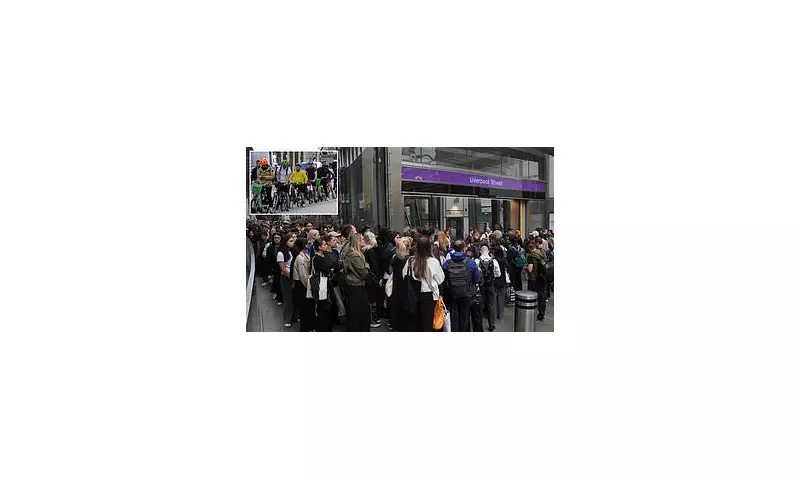
London was plunged into transport chaos today as a massive 24-hour Tube strike brought the Underground network to a virtual standstill. The walkout, orchestrated by the ASLEF union, has sparked a furious political debate, with ministers and union bosses clashing over the potential introduction of driverless trains.
The industrial action, which began on Thursday evening, has severely disrupted services across all lines, leaving millions of commuters and tourists facing a Friday of travel misery. Major stations were left eerily quiet, a stark contrast to the usual hustle and bustle of a weekday morning.
The Heart of the Dispute
The strike centres on a bitter pay dispute and, more significantly, deep-seated fears over the future of train drivers' jobs. ASLEF's District Organiser, Mick Lynch, has vehemently denied the strike is solely about pay, framing it as a "fundamental battle for the soul of London's transport."
He argues that Transport for London (TfL) and the government are laying the groundwork for a fully automated network, a move he claims would compromise safety and lead to massive job losses. "This is about defending a safe, publicly owned Tube network with a human operator in the cab," Lynch stated.
Government Hits Back
The government has responded with equal force. A Department for Transport source slammed the strike as "cynical and politically motivated," accusing the union of "holding the capital to ransom." They pointed to the successful operation of driverless trains on the Docklands Light Railway (DLR) for decades as proof of the technology's viability and safety.
Minister for London, Paul Scully, entered the fray, urging Mayor Sadiq Khan to "get a grip" on the situation and take a firmer stance against the union's demands.
Commuters Bear the Brunt
For Londoners, the political row offers little consolation. The strike has created a nightmare on the roads, with severe congestion reported on key routes into the city as commuters turned to cars, buses, and bicycles. Bus stops saw enormous queues, and rental bikes were in incredibly high demand.
TfL issued severe disruption warnings across the board, advising passengers to avoid travel on the Tube if at all possible and to complete any essential journeys by 6 pm on Thursday. While a handful of lines were operating a severely reduced service, the advice was clear: expect widespread disruption and long delays.
A Glimpse into the Future?
This strike is more than a one-day event; it's a preview of a looming battle over the automation of public transport. As other global cities move towards driverless technology, this confrontation in London sets a crucial precedent. The outcome of this dispute could very well determine how millions of people will travel around the capital for decades to come.





